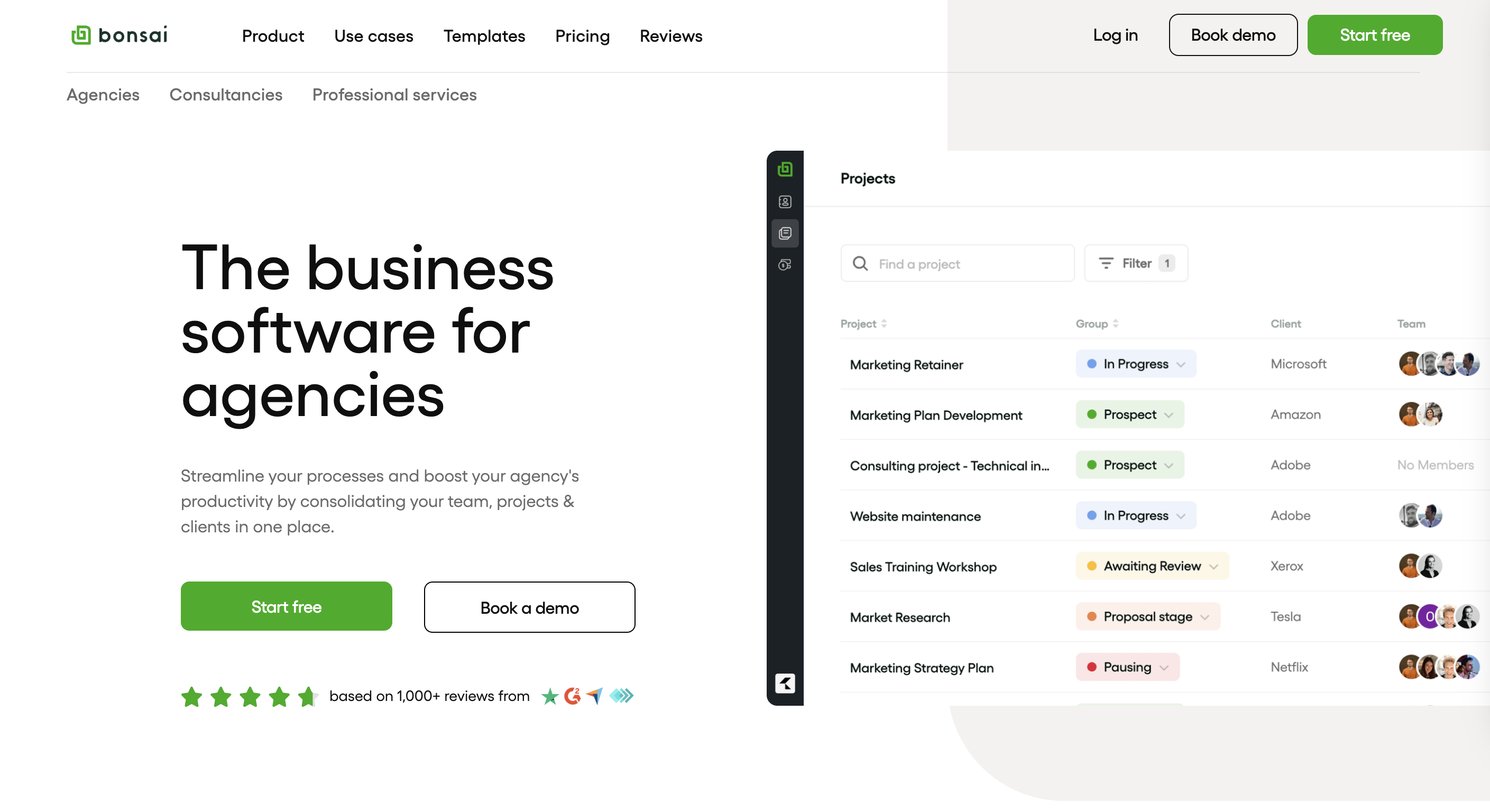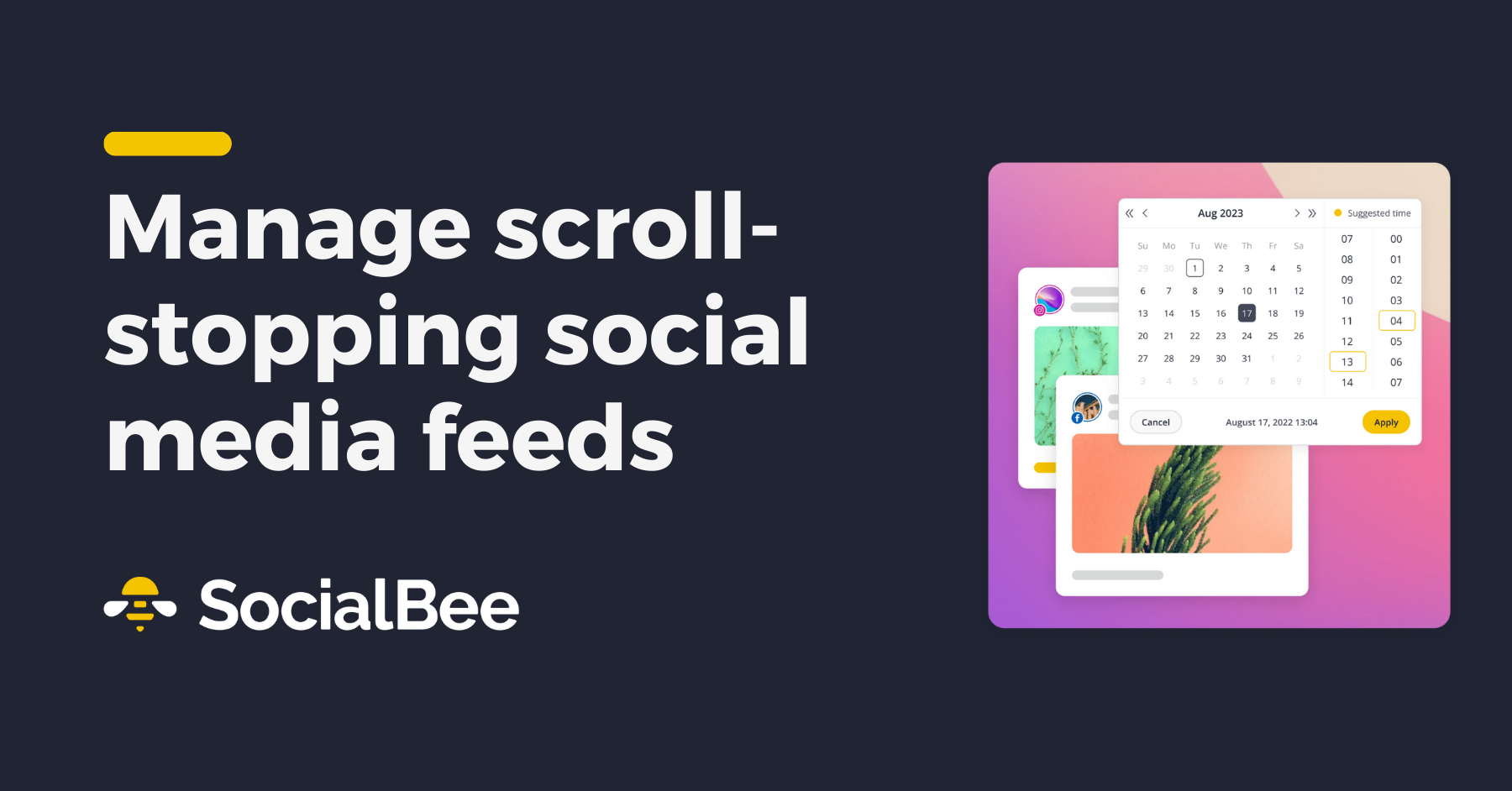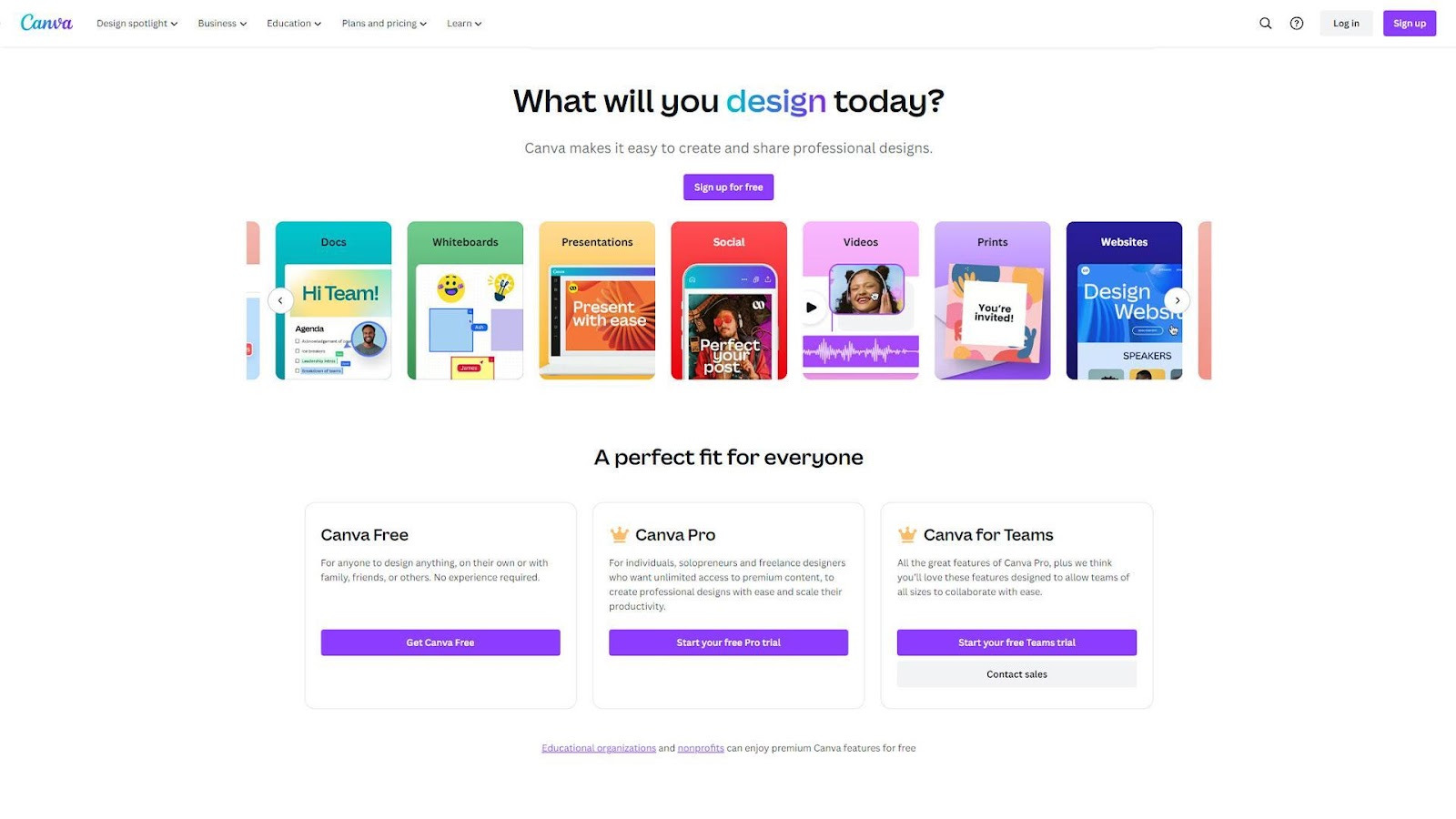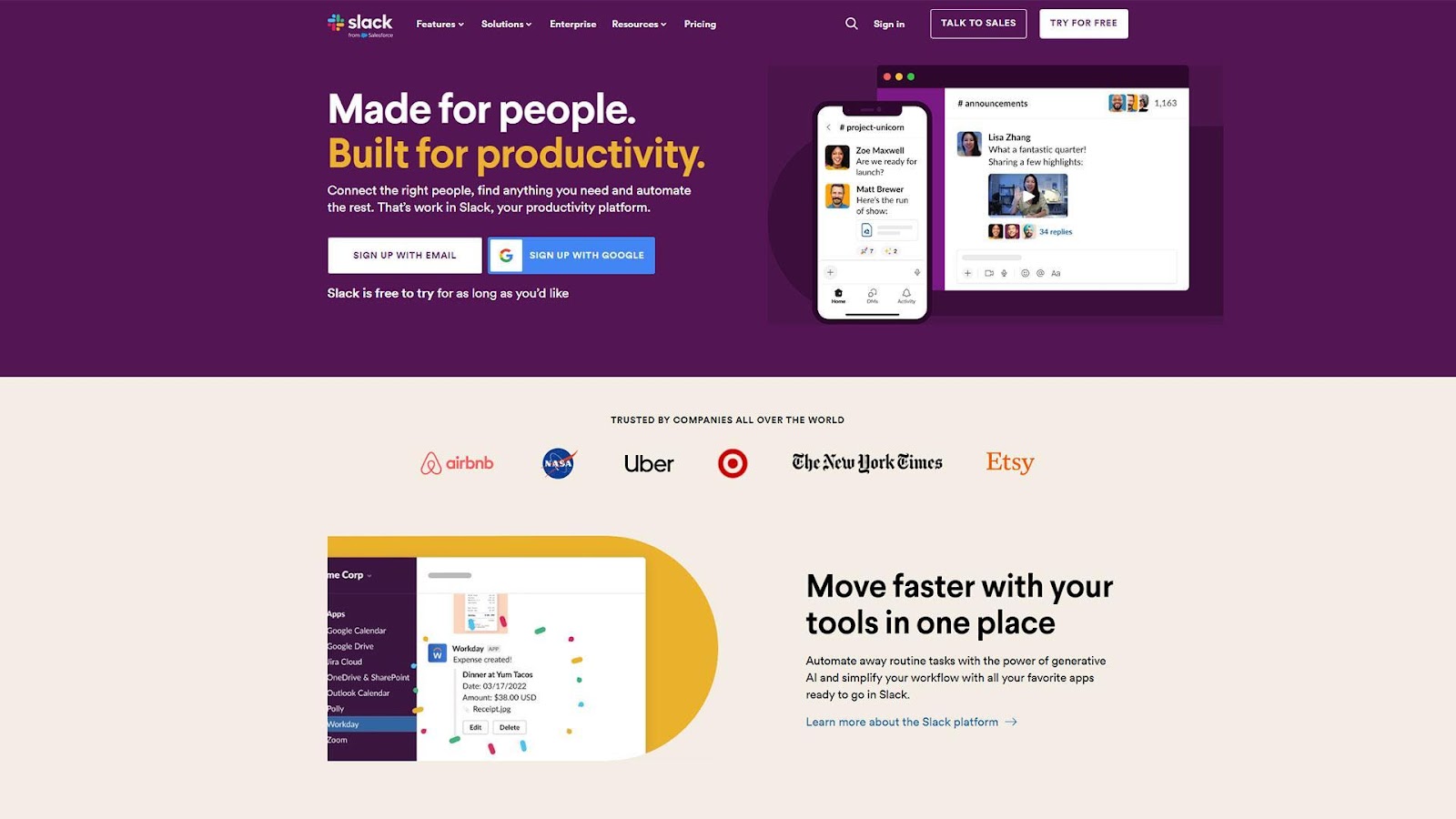Gaining new clients and building lasting relationships are important facets of agency growth. As you scale your operations up, you need to find ways to expand your growth strategies while maintaining excellent service for your existing clients. The right software and apps can help with this — but choosing the best solutions can be a challenge.
Software experts estimate that each business currently invests in around 300 separate SaaS (software as a service) applications. Shockingly, 53% of these remain unused. In other words, businesses including agencies are gouging their budgets by purchasing software that doesn’t match their needs. Thankfully, there are plenty of instant agency tools you can get for free. You can explore these tools and figure out if they’re right for your teams before you decide to invest further funds into them.
This article highlights the importance of instant agency tools and a few of the best to get you started.

Understanding the importance of instant agency tools
Your business health relies on the ability to balance agency sales, marketing, and several other key metrics. Relying on humans to track every aspect of these metrics in separate databases or spreadsheets is unsustainable. It leads to employee burnout and demoralized team members who spend more time on admin than they do on client interactions. Also, work becomes prone to human error without tools like automation and auto-population.
Instant agency tools provide quick, accessible solutions to these challenges. These are instantly available tools, usually downloadable for free or with a free version that’s upgradeable at a later date. Agencies gain the flexibility of additional features for a minimal time investment and zero costs.
The role of instant agency tools in business growth
How do free tools drive business growth? Largely, by protecting agency budgets until enough research has been completed to make software investment decisions. If an agency wants to see if the design suite Canva can help them create graphics for blogs, they can try it out for free. This isn’t quite the same as a free trial. There’s no time limit here, just slight limitations on the features. With Canva, for example, the free version doesn’t have as many fonts and templates as the paid version.
If the agency’s creative team decides that Canva is the right tool for them, they might encourage an investment in the premium version. Conversely, if they decide it’s not for them, they can try different instant agency tools until they find the right one.
Benefits of using instant agency tools
It’s great to know that there are free tools available for your agency. But what are the primary benefits of using these?
Maximizing agency budgets
The first obvious benefit of utilizing free, instant agency tools is that they take nothing away from your budget. While later versions may require an investment, these free versions allow you to maximize your current budget with minimal commitment. There’s no vendor lock-in so your agency’s flexibility remains unaffected.
Freeing up employee hours
Business tools that help with scheduling, creating structured meetings, and team alignment create more free working hours. You can use that time to work on projects or interact with clients. You could even encourage your teams to take a little more downtime, a tactic proven to improve creativity and productivity.
Exploring multiple options
The wealth of instant agency tools available means your agency isn’t limited to particular providers. You can take your time trying out multiple apps until you find the right one.
Increasing democracy and collaboration
By democracy, we mean the ability of all voices in your team to be heard. When you roll out new software and proactively gather feedback, you let everyone know that their opinion is valued. New tools can also improve communication and collaboration, further increasing team morale.
Improving client experiences
When your internal processes work better, your external interactions improve. Clients will notice when you become more organized and will appreciate anything you can do to make experiences simpler for them.
Driving agency growth
This, of course, is a key benefit. When you find instant agency tools that you can rely on, you can permanently reallocate segments of your budget. You could put more money into improving services or lead generation.
Alternatively, you could spend the time and money you’ve saved on training and development. Learning new skills and improving existing ones could help your team members provide better experiences that drive an increase in brand reputation. Plus, integrating learning and development opportunities into the workplace helps you build a more inclusive and diverse workforce.
All these factors help grow your agency and could even support your ambitions to expand into adjacent markets.
Exploring top instant agency tools
Now you’ve got a sense of why sourcing instant agency tools is a good idea, let’s take a look at some of the most popular options. All these apps are available online via a quick download. Always check the terms and conditions before signing up for any new application or software.
Bonsai: An all-in-one agency business solution

Bonsai provides a suite of tools including an intuitive CRM, project management tools, and financial software. The paid version unlocks every benefit, but agencies can set up a free account and explore plenty of features with no commitment.
Some of these features include:
- Invoice creation from a range of templates
- Form creation, again, using dozens of pre-built templates
- Time tracking solutions
- Payment logging
- Proposal and quote crafting tools
- Contract building
- Industry-specific documents for fields from accountancy to wedding planning
Bonsai is also built with agencies in mind, with tools that help maximize productivity, improve efficiency, and provide better client experiences.
SocialBee: All-in-one solution for smarter social media management

SocialBee is an all-in-one, AI-driven social media management platform that lets you create, schedule, and publish content seamlessly across all major social channels from a single dashboard.
Forget the hassle of manual posting and save time using SocialBee’s top features. With AI support, you can craft compelling captions and images, or enlist Copilot, your AI social media manager, to build a personalized content strategy based on your input.
Effortlessly categorize content, schedule posts, and set evergreen content to repost automatically. Take advantage of hashtag collections, generate fresh hashtag ideas, collaborate with your team, track metrics with analytics, and stay responsive with the unified social inbox.
Additionally, SocialBee integrates seamlessly with tools like Canva, Unsplash, GIPHY, Bitly, Zapier, and more to enhance and streamline your workflow.
Canva: Simplifying design for your agency

If you’re a graphic design agency, you probably already have advanced tools for crafting images, logos, and other forms of visual communication. For everyone else, there are free design suites like Canva.
Canva’s free version offers multiple features for businesses of all sizes. These include:
- Content creation via Magic Studio
- Templates including presentations, whiteboards, and social media posts
- Print products, e.g., catalogs, mailers, and pamphlets
- Video creation tools
- Project organization solutions
Canva also offers an agency-specific solution, however this is a paid product with a free trial. It’s possible to take inspiration from their agency-related webpage and use the free tools to emulate similar results. The paid version includes branding templates and controls for tighter control over the creative process. However, for most agencies requiring snazzy visuals for social media and websites, the free version is more than sufficient.
Slack: Streamlining communication within your teams

Slack is a business communication platform that works entirely over the cloud. Features include the ability to have “team huddles” and integrate fun features like quizzes and games. The bigger your team gets, the less the free version supports your agency. However, the paid plan starts at $7.25 per employee, per month which may be affordable as your agency scales up.
Slack utilizes AI to provide additional productivity solutions such as summarizing long threads or searching conversations for specific keywords. Because all conversations are clearly visible in their appropriate channels, this app helps improve accountability and transparency. It’s easy to communicate individual and team needs from scheduling weekly meetings to syncing “to dos” across a whole area.
Grammarly: Creating content that generates leads for your agency

Grammarly is an AI-powered “writing partner” that copywriters, bloggers, and communication experts can use to hone their content. Grammarly, like most of our tools, does have a premium version. However, the free version provides plenty of features ideal for regular content creators. These features help your content team avoid errors, polish up existing writing, and change the tone where applicable.
For agencies wondering why they can’t just stick with their built-in spell checker, here are a few key reasons agencies get Grammarly:
- Persuasive writing tips, ideal for sales and marketing teams
- Built-in AI assistance to help with creative blocks
- A “human-centric” approach that makes writing sound as conversational as you require
- Security to protect your content when using their app or online platform
- An accessible interface that makes Grammarly easy to use, even for those with sensory issues or reading challenges like dyslexia
Agencies can integrate Grammarly into their existing word-processing solutions. Alternatively, there are desktop and web-based apps to suit varying needs. The primary benefit of Grammarly is that it helps you appear professional to clients and other stakeholders, such as investors.
Google analytics: Tracking and analyzing your agency's performance

Google Analytics is an online platform that connects to and collects data from your agency’s website and apps. It’s free to set up an account and very simple to add data tracking to any of your web pages or cloud-based applications.
There are many use cases here. Google Analytics can, for example, help agencies with their audience segmentation strategies. Collating data on what demographics engage with certain types of content could help hone marketing campaigns and target particular groups more closely. Google Analytics then helps further by gathering and visualizing data on those campaigns. Agencies can quickly understand the impact of their efforts, feeding results back into campaign creation.
There are even ways to connect Google Analytics to your social media accounts. You could find out how many comments a particular post is getting, or which videos get the most shares. Google Analytics is one of the best instant agency tools for gaining business-critical insights that drive expansion.
As your agency grows, you might find that the free version of Google Analytics becomes limited in comparison to your needs. When you reach this stage, Google offers paid variants of its services via the Google Marketing Platform.
Choosing the right instant agency tools for your business
These are just six instant agency tools — tools that help you make improvements to your agency strategies with minimal investment of time or money. There are plenty more on the market and researching them can become exhausting without some clearly defined parameters. Use the following tips to narrow down your software search quickly.
Understand your agency's needs
Why are you sourcing this new software? Is it simply to save money, or are your current apps limiting you in some way? Carefully collate your needs before you begin researching new tools. This will save you time and frustration along the way.
Evaluate the software’s features and capabilities
Before you download software and start working with it, take a good look at the capabilities to ensure it matches your needs. Consider looking at existing customer reviews and testimonials from a range of sources.
Consider your budget and ROI
While you might only be considering free tools at this point, you may want to invest money into a paid version in the future. Be sure to keep that in mind while researching your instant agency tools. You might determine that you only have $50 a month to budget for a strategic planning tool with organizational charts. If that’s the case, choosing a free one with a paid version that’s $200 per month could lead to disappointment further down the line. You would have to get very creative with your budget to justify the expense of the premium plan.
A way you could make this justification is if you could prove that the return on investment (ROI) was significant. That’s why it’s critical to monitor and record any efficiency improvements and cost savings that new apps bring to your agency.
Implementing instant agency tools in your business
Installing and using new software is rarely as simple as it sounds. You may have team members who are used to doing things a certain way and resistant to change. There may also be naysayers who don’t believe that a free tool can provide the right level of service. However, there are ways to address these challenges and ensure the successful implementation and integration of your instant agency tools.

Planning for successful implementation
All aspects of agency transformation need a plan — even an aspect as minimal as implementing new software. Rather than downloading apps ad hoc and expecting teams to try them out, consider creating an implementation checklist:
- List apps and tools you want to try out.
- Clearly define which features will benefit your agency and why.
- Create a timeline for trying these applications.
- Ahead of implementation, advertise the change to your team members — be clear on why you’ve decided to try this tool. Use your benefits list.
- Roll the app out in segments and gauge acceptance levels.
- Monitor and record success — more on that further down the article.
If you receive criticism or feedback, take it all on board. Software comparison experts suggest that implementation is more successful when engaging end users in the process.
Training your team on new tools
Of course, it’s critical to train your team on the tools you want them to use. With free tools, you’re unlikely to get an onboarding call or video chat. However, there are still resources you can leverage to create meaningful software training.
Check out YouTube for instructional videos. There are many tech-based vlogs with hundreds of tutorials on all kinds of software. Check through each video first to make sure the content aligns with your company values.
You could also ask if other team members have any experience using the app or tool. You might be surprised to find you already have an expert in your midst. If that’s the case, consider working with that employee, offering overtime or other benefits in exchange for their assistance.
Many software providers have online repositories of support resources — even some of the best free ones. Review help centers and community forums for assistance where needed.
Measuring the impact of instant agency tools on your business
Understanding the effectiveness of these tools requires a comparison between current agency results and those before installing the new app. It’s critical, therefore, that you have ways to measure performance and a clear understanding of which aspects of success are most important to your agency.
Tracking key performance indicators (KPIs)
These performance measurements are called key performance indicators or KPIs. Unless you’re just starting out, you’ll probably have a great strategy in place for measuring these. Set goals with your strategy team or specialists — how long do you want to try out the new tool and what results are you hoping for? Choose which KPIs you’ll specifically measure and keep careful charts of increases or declines. Set a deadline for reporting and discuss the results with the relevant team members and stakeholders.
Adjusting strategies based on data
As with all agency strategies, it’s important to pivot when things don’t work — and double down when they do. Consider which of your free tools provides the best ROI, and if you could boost that further by investing in the paid version. Collate all relevant data and use analytics tools to give you the best information to make an informed decision. Remember, if a tool isn’t working for you even after seeking support, it costs you nothing to seek a trusted alternative.
If you want more information on instant agency tools that can help your agency grow, get in touch or click here to see what Bonsai can offer for free.







